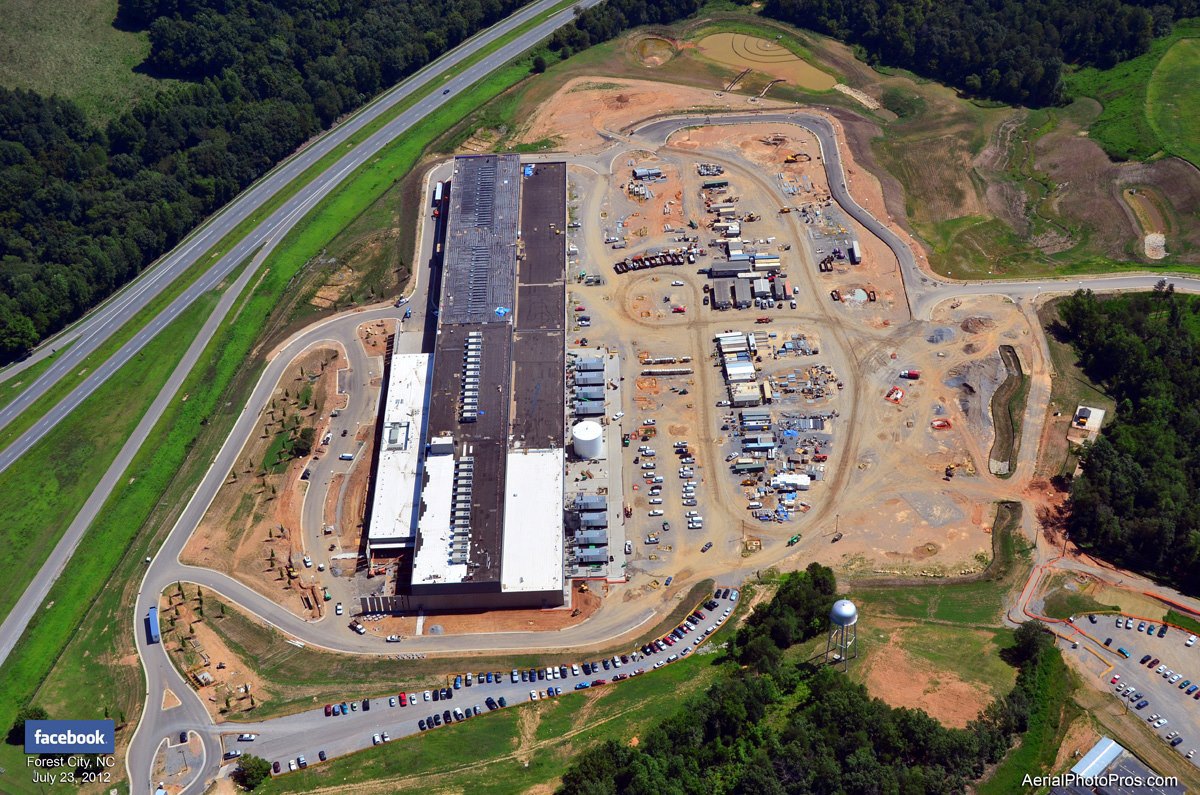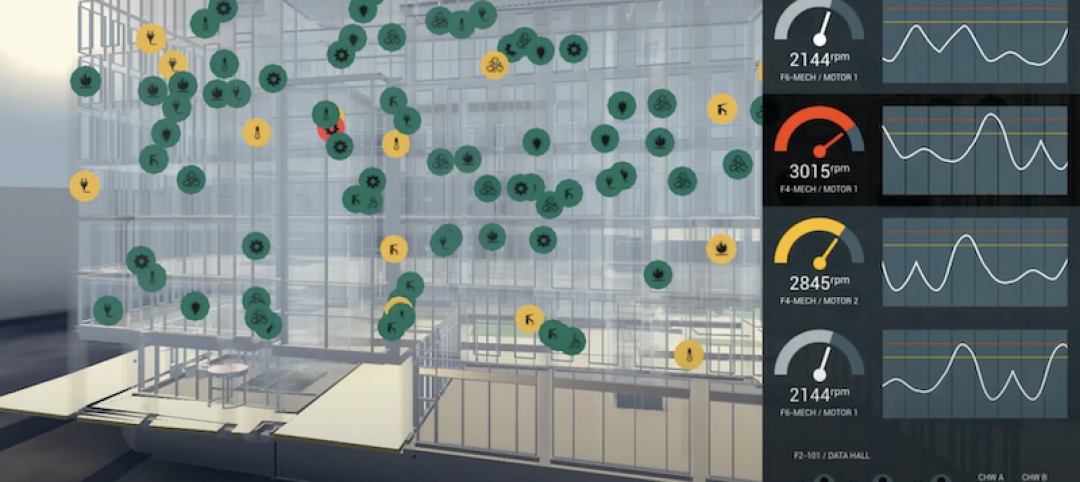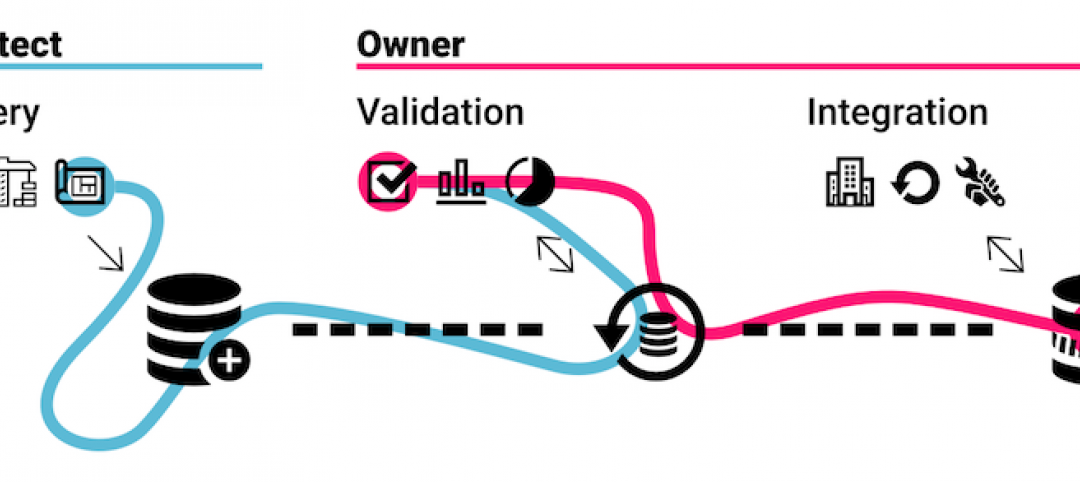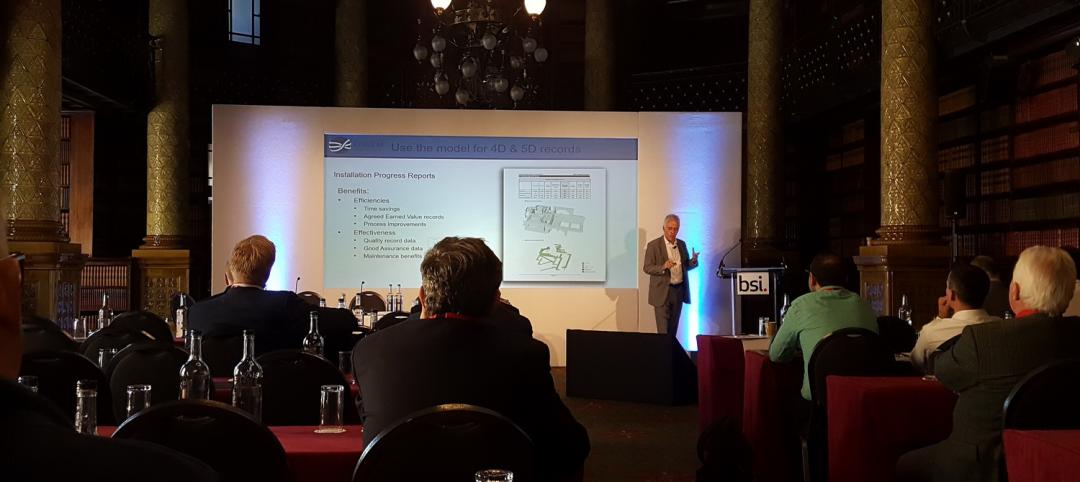Forest City, N.C., was once known as Burnt Chimney. But smokestacks are definitely a thing of the past, thanks to the social media giant Facebook, which is investing another $200 million to expand its data center campus there with a third, 480,000-sf building.
Construction reportedly is underway in Forest City, which lies between Asheville, N.C., and Greenville, S.C.
In a blog he posted on Facebook, Keven McCammon, the data center’s site manager, said that construction would add to a project that already has created “thousands of jobs in the regional economy and millions of dollars in economic impact.”
There’s no question that Facebook’s presence has been a boon to Forest City and its 7,400 local residents. The company invested $450 million into the first two buildings that each span 300,000 sf. RTI International, a firm Facebook retained to measure its economic impact, found that between 2011 and 2013 the data center had generated a total gross economic impact of $707 million and supported 5,000 jobs in North Carolina.
And since 2011, Facebook has awarded an estimated $575,000 to schools and qualified nonprofits in Rutherford County, where Forest City is located. Facebook recently agreed to support a pilot program to provide free WiFi access to 75 to 100 students in the local school district.
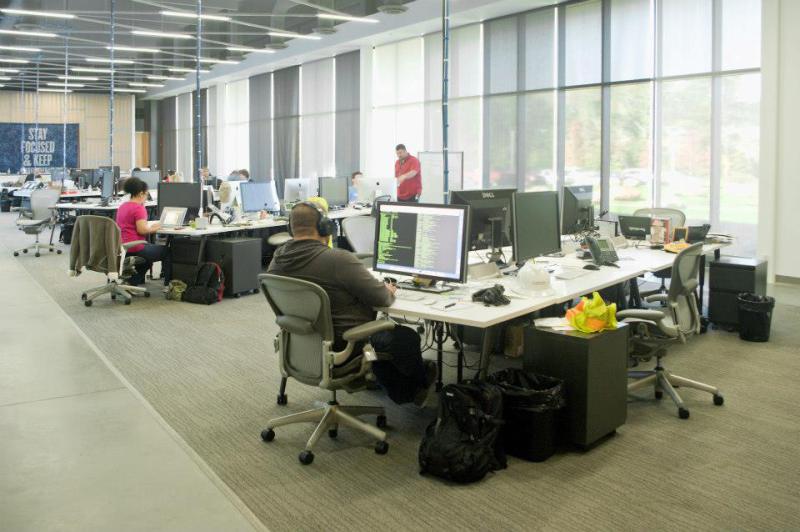 Office space at Facebook's data center in Forest City.
Office space at Facebook's data center in Forest City.
Facebook, along with other tech companies, has favored North Carolina for its data center because of the state’s low-cost, reliable and available power, relatively inexpensive land, available water (at Forest City, Facebook is deploying evaporative cooling, which requires mist spray to cool the air as it enters the facility), proximity to East Coast customers, and generous tax incentives.
In June, Facebook announced plans to build a third data center on its campus in Altoona, Iowa, where its first data center there was already operational and a second was under construction. One month later, it broke ground on construction of a data center in Fort Worth, Texas, for which the company will invest $500 million in three 250,000-sf buildings. That data center, when it opens next year, will be powered entirely by wind power.
Facebook was the recipient of a $146.7 million incentive package from Fort Worth to locate its data center there. The Associated Press reports that state governments across the country over the past decade have extended nearly $1.5 billion in tax incentives to hundreds of data center projects initiated by various tech companies.
Facebook also has data centers in Pineville, Ore., and Lulea, Sweden.
Related Stories
Sponsored | BD+C University Course | Oct 15, 2021
7 game-changing trends in structural engineering
Here are seven key areas where innovation in structural engineering is driving evolution.
AEC Tech Innovation | Oct 7, 2021
How tech informs design: A conversation with Mancini's Christian Giordano
Mancini's growth strategy includes developing tech tools that help clients appreciate its work.
Digital Twin | May 24, 2021
Digital twin’s value propositions for the built environment, explained
Ernst & Young’s white paper makes its cases for the technology’s myriad benefits.
AEC Tech | Mar 4, 2021
The Weekly show, March 4, 2021: Bringing AI to the masses, and Central Station Memphis hotel
This week on The Weekly show, BD+C editors speak with AEC industry leaders about the award-winning Central Station Memphis hotel reconstruction project, and how Autodesk aims to bring generative design and AI tools to the AEC masses.
AEC Tech | Jan 28, 2021
The Weekly show, Jan 28, 2021: Generative design tools for feasibility studies, and landscape design trends in the built environment
This week on The Weekly show, BD+C editors speak with AEC industry leaders from Studio-MLA and TestFit about landscape design trends in the built environment, and how AEC teams and real estate developers can improve real estate feasibility studies with real-time generative design.
AEC Tech | Nov 12, 2020
The Weekly show: Nvidia's Omniverse, AI for construction scheduling, COVID-19 signage
BD+C editors speak with experts from ALICE Technologies, Build Group, Hastings Architecture, Nvidia, and Woods Bagot on the November 12 episode of "The Weekly." The episode is available for viewing on demand.
Smart Buildings | Oct 26, 2020
World’s first smart building assessment and rating program released
The SPIRE Smart Building Program will help building owners and operators make better investment decisions, improve tenant satisfaction, and increase asset value.
BIM and Information Technology | Oct 8, 2020
4 challenges of realizing BIM's value for an owner
In recent years, we have found our consulting practice engaging more and more with owners that are questioning the value of BIM and how they can make use of potentially data-rich BIM assets.
AEC Tech | Feb 5, 2020
BIM London: A glimpse of BIM discussions across the pond
Digital twin, ISO standards, blockchain, and data were the hot topics at the recent The Digital World: BIM event.
Building Technology | Mar 6, 2019
Australia’s prefab construction sector is trying to break out from its 'getting there' stage
A paper by Deloitte looks back at an origin case study. But the country has yet to develop a fully formed industry.


